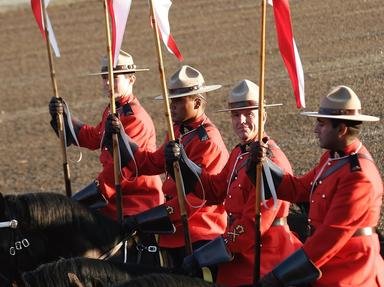Quiz Answer Key and Fun Facts
1. "My Dear Monsieur de Champlain,
My heartiest congratulations and to you and your party for founding the first permanent French settlement in this so-called North America. You have performed admirably and performed a great service for your country.
Vive La France!
King Henry IV
What was the year and eventual name of the settlement?
2. "Dear Misters Pierre-Esprit Radisson and Médard des Groseilliers in this year of (____), I grant an English royal charter as "The Governor and Company of Adventurers of England trading into Hudson's Bay". Further this land shall be called Rupert's Land.
His Royal Highness King Charles II"
What year did this occur?
3. "I Prince Rupert, future King of England and Great Britain will sign this treaty, today on December 30 in the year of our Lord of 1814. May our respective countries now continue as allies not enemies"
What formally ended the War of 1812?
4. "My Dear Delegates,
It is with my utmost approval that I grant the Dominion of Canada be forged as part of the British Empire. I have signed the appropriate act giving you the legislative approval to form your own country. Good Luck with your endeavors.
Sincerely,
Her Royal Highness, Queen Victoria"
To what Act was she referring?
5. "With this last spike, I now declare the Canadian Pacific Railroad complete".
Mr Donald Smith 7 November 1885.
Where was Mr Smith when he made this declaration?
6. "My Canadian colleagues, the courage you have shown in this battle shall not go unnoticed nor unacknowledged. It was a defining moment for Canada as a nation"
- Lieutenant-General Sir Julian Byng* 12 April 1917
What battle was the general referring to?
7. "My Dear Dr Banting, We the Nobel Foundation would like to invite you to Stockholm to receive the 1923 Nobel Prize in Physiology and Medicine".
For what discovery did Frederick Banting receive this prize?
8. "The introduction of this public health initiative will give better health to more Canadians".
Attributed to Tommy Douglas, Premier of Saskatchewan 1944-61.
What was the Public Health initiative?
9. Actual Letter to the editor, York.com
"I'm a Grade 5 student at Northern Lights Public School here in Aurora. My letter is regarding the concern of the mural on the corner of Wellington and Yonge. There are many amazing people on that mural, but one amazing person that stands out the most is not there, and that is Terry Fox."
Oct 13, 2017 Aurora Banner
In 1981 Terry Fox, 23, left to run across Canada from east to west. Did he complete the run?
10. Remarks by the Prime Minister Pierre Trudeau at the Proclamation Ceremony on April 17, 19__. Ottawa:
"Today, at long last, Canada is acquiring full and complete national sovereignty. The Constitution of Canada has come home. The most fundamental law of the land will now be capable of being amended in Canada, without any further recourse to the Parliament of the United Kingdom".
What year did the Canadian Charter of Rights and Freedoms change the Canadian Cultural landscape?
Source: Author
1nn1
This quiz was reviewed by FunTrivia editor
gtho4 before going online.
Any errors found in FunTrivia content are routinely corrected through our feedback system.
